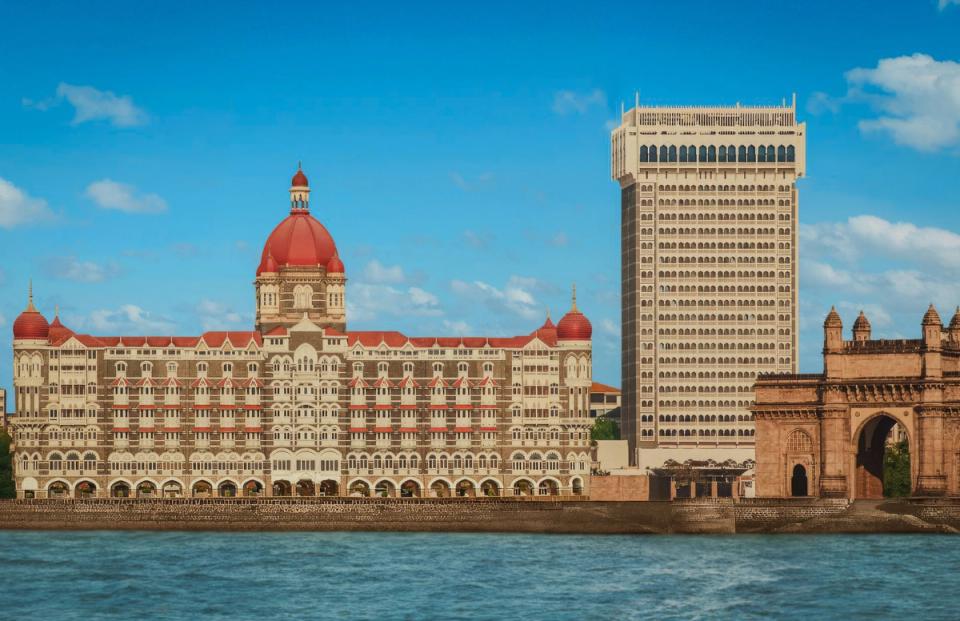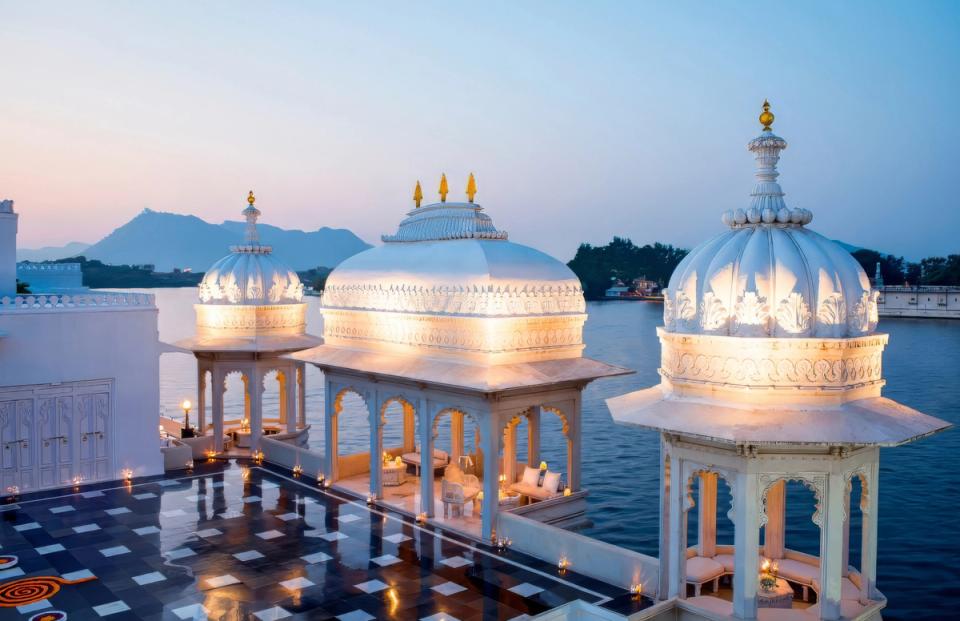

India, a land where history and modernity harmoniously intertwine, stands as a living testament to the splendour of its architectural wonders and the richness of its diverse cultural tapestry.
Amidst this vast landscape of heritage and innovation, few entities better epitomize the nation's enduring commitment to preserving its cultural and architectural legacy than the Taj Hotels. Beyond being opulent havens for travellers, the Taj brand represents a profound dedication to safeguarding India's unparalleled cultural heritage and architectural marvels.
In this comprehensive exploration, we will embark on a journey to unravel how the Taj Hotels, with their distinctive properties and enduring traditions, breathe life into the essence of preserving India's deeply ingrained cultural and architectural legacy.
The Taj Hotels, through their distinct properties and unwavering commitment to preservation, become not just places to stay but gateways to India's history and culture. The exploration of their establishments and the preservation initiatives they undertake opens a portal to a world where time-honoured traditions are carefully conserved, and architectural marvels are lovingly restored.
Rooted in the early 20th century, the Taj Hotels, Resorts, and Palaces have become synonymous with opulence, exceptional hospitality, and a deep reverence for India's heritage. Established by the visionary industrialist, Jamsetji Tata, the Taj Group has seamlessly woven India's rich tapestry of culture, history, and architectural excellence into the fabric of its luxury hotels. Each Taj property is not merely a place to rest; it's a living testament to the timeless connection between history, tradition, and modernity.
The Taj Mahal Palace in Mumbai, an iconic property of the Taj Group, exemplifies this legacy. This architectural marvel fuses a medley of styles, including Moorish, Oriental, and Florentine, creating a timeless masterpiece that tells the story of India's architectural diversity.
The Taj Mahal Palace isn't just a luxury hotel; it's a living gallery that exudes the grandeur of India's historical and cultural tapestry. As guests walk through its corridors, they traverse a rich historical narrative that celebrates India's traditions.
For the Taj Hotels, preservation is not merely a buzzword but a solemn pledge. Many Taj properties occupy historical landmarks, and the commitment to restoration and conservation is central to their ethos. The meticulous restoration work undertaken in these properties is nothing short of an art form, aiming not just to retain the original splendor but to accentuate their cultural significance.
A striking example of this dedication to preservation is the Taj Mahal Palace in Mumbai. In the aftermath of the devastating terrorist attacks in 2008, the hotel underwent a comprehensive restoration process.
This painstaking effort was a testament to the resilience and cultural significance of the Taj Mahal Palace. The hotel was not just rebuilt; it was lovingly restored to its former glory, standing tall as a symbol of India's unwavering commitment to its architectural heritage.

The Taj Lake Palace in Udaipur, an erstwhile royal summer retreat, is another example of the Taj Group's expertise in restoration. This magnificent white marble palace, which appears to float on Lake Pichola, stands as a tribute to the grandeur of Mewar's Rajput heritage.
Each room narrates the history of the region, adorned with traditional frescoes, ornate mirrors, and lavish furnishings. The Taj Lake Palace is not just a hotel; it's a living monument to Rajasthan's cultural heritage, meticulously preserved for future generations to appreciate.

The Taj Hotels are not only architectural wonders; they are gateways to India's tradition and culture. Beyond their physical grandeur, they represent India's values of warmth, hospitality, and diversity. The staff at Taj Hotels, hailing from various regions of India, ensure that guests experience not just luxurious accommodation but also a cultural immersion.
A journey through India is incomplete without savouring its culinary diversity, and the Taj Hotels offer a gastronomic odyssey that spans the length and breadth of the country. From the aromatic Mughlai cuisine at the Jai Mahal Palace to the flavours of Rajasthan at the Taj Lake Palace, each meal is a celebration of India's culinary traditions. The Taj Hotels are deeply committed to using local, sustainable ingredients, promoting India's rich gastronomic heritage, and supporting local communities.
Art and decor play a pivotal role in underscoring the Taj Group's cultural commitment. The hotels often showcase local art, crafts, and textiles, allowing guests to engage with and appreciate India's vibrant artisanal traditions. Within the splendid interiors of the Taj Hotels, guests encounter exquisite handwoven silks, intricate hand-painted murals, and indigenous woodwork, serving as reminders of India's rich craftsmanship.
In the realm of hospitality, tradition extends to the celebration of festivals. The Taj Hotels go above and beyond to offer guests an authentic experience of Indian traditions and celebrations during festivals like Diwali, Holi, or Eid. These experiences allow guests to immerse themselves in the local culture, gaining a deeper appreciation for India's diverse traditions.
The Taj Hotels are not merely luxury accommodations; they are living embodiments of India's rich cultural and architectural legacy. Their commitment to preserving and celebrating this heritage is not merely a symbolic endeavour but a profound recognition of the importance of tradition in the modern world.
The Taj Hotels serve as bridges between history and modernity, and their meticulous restoration efforts are a testament to their dedication to preserving India's architectural treasures. Their opulent interiors and culinary experiences pay homage to India's diverse traditions, bringing them to life for every guest.
As the Taj Hotels continue to evolve and expand, they remain firmly rooted in the belief that the best way to embrace the future is by preserving the past. In a world where globalization often leads to cultural homogenization, the Taj Hotels stand as powerful reminders that the preservation of heritage and the embrace of modernity need not be mutually exclusive.
They inspire us to find a harmonious balance between tradition and progress, creating a rich tapestry of experiences that celebrate the beauty and diversity of the world's cultural and architectural legacies. The Taj Hotels beckon us to explore and experience the timeless elegance of tradition, forging a connection between the past and the present that is both enriching and enduring.